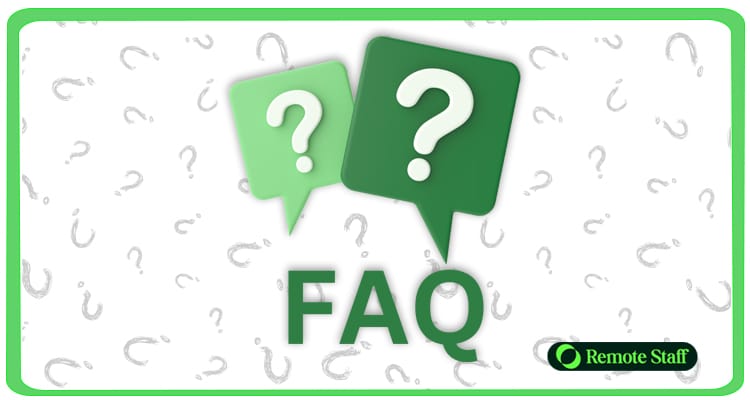(PART 1 of 3 of the CSR Mini Course)
Providing great customer service is more important than ever.
Whether it’s resolving issues quickly or offering personalized solutions, effective customer support strengthens relationships and encourages repeat purchases.
Businesses know that keeping customers happy is key, and they’re willing to pay well for people with the right skills to make this happen.
It’s this growing need for quality service that’s been driving the rise in online jobs for customer service roles.
So what skills do remote workers need to take advantage of this trend?
Key Skills in Customer Support That Command Top Dollar
Many Filipinos are making a good living through customer service jobs. Just check out these high-paying customer service roles.
Thus, whether you’re new to customer support or have years of experience, developing key skills can greatly boost your job prospects – and salary.
With that, here are the top CX customer support skills businesses are willing to pay a premium for.
Empathy and Emotional Intelligence
In this field, you will face many challenging situations, from frustrated customers to complex problems.
Having empathy and emotional intelligence helps you navigate these more successfully, so it pays to try and understand the customer’s perspective before responding with care.
These skills don’t just de-escalate tense situations, but also build trust and loyalty, making a lasting positive impact on the customer’s experience.
Here are specific techniques for handling emotional situations at work so you can navigate these challenges with empathy AND excellence.
Effective Communication
This has a direct impact on the quality of customer interactions.
Clear, concise communication ensures that customer concerns are understood and addressed quickly, reducing misunderstandings and frustration.
In customer service roles, you use either verbal or written communication to interact with clients – and there are ways to improve your CSR skills at both.
Problem-Solving and Critical Thinking
Good problem-solving skills are crucial to quickly understanding issues, identifying the cause, and finding effective solutions.
This involves evaluating different options, weighing the pros and cons of each solution, and making informed decisions that benefit both the customer and the company.
Here are some ways you can improve your customer support skills in this area.
Analyzing Customer Issues
The first step is to analyze the customer’s issues. Here’s a systematic framework to help you understand the problem clearly so you can resolve it effectively:
- Step 1: Listen carefully – Focus on what the customer says and ask questions if needed.
- Step 2: Get details – Ask for more information to flesh out the issue further.
- Step 3: Look for patterns – Do they match any similar problems you’ve resolved in the past?
- Step 4: Break it down – Divide the issue into smaller parts to determine the root cause.
- Step 5: Summarize – Describe the situation with the customer in your own words to make sure you’re both on the same page.
Only then can you begin developing solutions.
Developing Fast Solutions
Customer service representatives that provide quick solutions keep customers happy and win their trust.
Here’s how you can increase your chances of doing so:
- Step 1: Stay calm – Cool heads and clear minds come up with better solutions.
- Step 2: Use your resources – Look up FAQs or guides for instant answers.
- Step 3: Draw on experience – Start with solutions that worked for similar issues in the past.
- Step 4: Follow procedures – Stick to company guidelines to save time.
- Step 5: Keep things simple– Explain the solution clearly so the customer understands.
- Step 6: Escalate if needed – If you can’t solve it on your own, pass it to someone who can.
With these steps, you’re better equipped to solve problems faster and keep more customers satisfied.
Product Knowledge and Technical Skills
As a customer service representative, you should cultivate strong product knowledge and technical customer support skills to effectively assist customers, answer their questions, and resolve issues quickly.
Product Mastery
You should understand the features, benefits, and common problems associated with the products or services under your purview.
Study product materials, attend training sessions, and, if possible, use the products yourself to familiarize yourself better.
Technical Troubleshooting
Having technical skills involves knowing how to use tools and systems in your job, like CRM software and troubleshooting methods.
It also helps to have the best computer specs suitable for your niche when you work from home.
Adaptability
Changing customer needs and unexpected situations are par for the course, and you need to respond with personalized solutions for both.
For example, if a customer calls with an issue that’s beyond what’s on the standard script, a good support agent can think on their feet and find an alternative solution that’ll satisfy the said customer.
Here’s how you can develop your adaptability in CX better:
Adjusting to Customer Needs
Listen carefully to each customer to understand their concerns and to tailor your communication to match their preferences.
Also, be proactive by anticipating issues and offering solutions early. Always show empathy to build trust.
Managing Unpredictable Scenarios
Stay calm and focused while quickly assessing the situation and prioritizing key issues.
Use creative problem-solving to find alternative solutions when standard processes don’t apply.
Be flexible and ready to adjust your approach, and keep the customer informed throughout the process.
Lastly, learn from each experience or seek help from your seniors to improve your handling of similar situations in the future.
Active Listening
Active listening is a communication technique where you fully concentrate on understanding what the customer is saying before formulating a response.
It goes beyond simply hearing words; it requires engagement and attention to both verbal and non-verbal cues (e.g. response time, tone of voice, emojis used, and formatting of replies).
It is an essential skill that greatly improves customer support professionals for these reasons:
Techniques to Improve Active Listening
So how do you improve your active listening skills?
- Avoid Interrupting: Let customers finish speaking before you even begin to respond. This shows respect and encourages them to express their concerns fully.
- Use Open-Ended Questions: Ask questions like “Can you tell me more about the issue?” to encourage customers to provide detailed information.
- Paraphrase and Summarize: Restate what the customer has said in your own words to confirm understanding and show that you are listening.
- Provide Feedback: Use phrases like “I understand” or “That makes sense” to acknowledge the customer’s feelings and concerns.
- Practice Empathy: Acknowledge the customer’s feelings by saying things like, “I can see how that would be frustrating,” to build rapport and trust.
Crisis Management Expertise
This helps support agents remain calm when faced with difficult customers or complex issues, leading to better problem-solving, and enables them to bounce back from tough interactions and onto the next customer without compromising the level of service provided.
Patience in customer support is critical when dealing with a crisis – as is employing the right techniques:
Dealing with Difficult Customers
Most customers seek a smooth, hassle-free experience. The faster and smoother you can resolve their concerns, the better.
However, sometimes, you might encounter difficult customers who are frustrated, confused, or unable to clearly articulate their problem, making it challenging to provide a quick solution.
These customers typically exhibit:
- Confusion or Lack of Clarity: They may have trouble explaining their issue, leading to miscommunication.
- High Levels of Frustration: These customers might seem impatient or upset, often expressing their dissatisfaction early on in the conversation.
- Demanding Behavior: They may request immediate or unrealistic solutions or insist on receiving special treatment.
- Frequent Complaints: Some difficult customers bring up several issues, even ones unrelated to their current problem, which can complicate the interaction.
By staying calm, empathetic, and focused on finding a solution, you can effectively manage difficult customers and still get positive outcomes out of challenging situations.
Overcoming Stressful Situations
Overcoming stressful situations in customer service involves more than just dealing with difficult clients.
The job itself can be demanding. Working graveyard shifts can disrupt sleep, affecting focus and patience.
Technical issues like malfunctioning systems or poor internet connections add to the stress, especially when customers expect quick solutions.
During these times, customer service workers often feel pressure to stay positive despite the frustration.
To manage stress, it’s essential to practice self-care, communicate clearly with the team, and find ways to solve technical problems calmly and effectively.
Multilingual Proficiency
Companies pay more for multilingual customer support representatives, as this helps them cater to a wider range of customers and provide service for non-English speakers.
The Value of Language Proficiency in CX
As a customer service representative, being proficient in multiple languages can significantly boost your value.
It helps you connect with more customers, making them feel understood and supported.
Expanding Global Reach
The more languages you speak, the more customers you can attend to the world over and the higher your earning potential gets.
Some of the most strategic languages in customer service are:
- Mandarin
- Spanish
- Japanese
- Portuguese
- French
- German
Mastering these helps you serve a substantial global customer base and boost your career opportunities.
CX Data and Analytics Proficiency
CX professionals who can analyze and interpret data help companies spot trends, preferences, and pain points, leading to targeted improvements in customer service.
Customer service representatives (CSRs) can use data from customer interactions and feedback to identify recurring issues, tailor their responses, and enhance service delivery.
This skill in CX data analytics enables CSRs to understand and address customer needs more effectively.
Understanding CX Metrics
By analyzing key performance indicators (KPIs) like Net Promoter Score (NPS), Customer Satisfaction Score (CSAT), and Customer Effort Score (CES), organizations can make informed decisions that improve service quality and customer loyalty.
For customer service professionals, understanding these metrics can lead to managerial opportunities, as it demonstrates your ability to use data for strategic improvements and enhance the customer experience.
Leveraging Customer Data for Personalization
Companies can use customer data to personalize online services and enhance the customer experience.
For example, if a customer frequently books beach vacations on a travel booking site, you can suggest related services, such as local excursions, spa treatments, or travel insurance, during a chat or email interaction.
This personalized approach leads to relevant recommendations, increased customer satisfaction, and greater loyalty.
By using customer data during online interactions, you can engage in more meaningful conversations, address specific concerns, and provide tailored solutions that meet the customer’s needs.
FAQ
Got more questions? Here are some answers to the most frequent ones.
How can I measure the return on investment (ROI) from my CX skills as a remote contractor?
You can quantify your CX customer support skills based on the KPIs from your clients, such as customer satisfaction scores, Net Promoter Scores (NPS), retention rates, and response times.
What are the risks of not investing in continuous learning for CX as a remote contractor?
Left unchecked, outdated skills won’t meet changing client needs.
This can lower client satisfaction, making it harder to retain existing clients and attract new ones.
How can I balance multiple clients while maintaining high-quality CX as a remote contractor?
You need to practice effective time management and organization by using tools like calendars, project management software, and task lists to track deadlines and deliverables for each client.
Also, set clear boundaries by establishing dedicated work hours for each client. This way, you work only on their account during that time.
Conclusion
When you invest in the CX skills above, you’re more likely to attract – and retain -premium clients throughout your career.
Not sure where to start? Click here to find the best training programs for your needs so you can get your CX career off the ground.
However, if you’re still looking for customer service jobs online, you can sign up with Remote Staff.
Remote Staff can match you with long-term clients who will value your expertise, giving you stable income opportunities as you build your skills and career.
Register today!
RELATED ARTICLES:
Mini Course Part 2: 5 Useful Strategies for Boosting Your CX Career
Mini Course Part 3: 15 Popular CX Tools Top CX Professionals Should Be Familiar With










